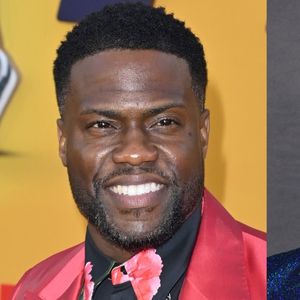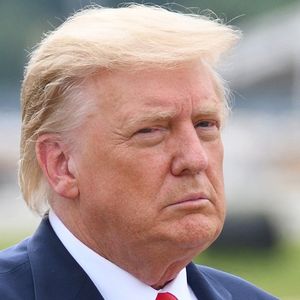California
governor Arnold Schwarzenegger endorsed Sen. John McCain for
president, giving a potential boost to the Republican
front-runner heading into next week's pivotal
nominating contests in over 20 states.
The endorsement
could help give McCain further momentum in pulling ahead
of his main Republican rival Mitt Romney, who promised to
fight aggressively for the nomination, as Hillary
Rodham Clinton and Barack Obama held a Thursday night
debate in their battle for the Democratic nomination.
At a news
conference Thursday, Schwarzenegger praised the Arizona
senator and former Vietnam prisoner of war as a strong
leader with good security credentials who can reach
across the political divide.
Republican Rudy
Giuliani also attended the event, one day after he
dropped out of the race and threw his support behind his
longtime friend.
McCain is
counting on both men -- Schwarzenegger in California and
Giuliani in New York -- to help propel him to victory in the
two biggest states holding primaries next week.
Combined, the two states offer 271 delegates, more
than a quarter of the 1,023 at stake on Tuesday. McCain
also won the backing of Texas governor Rick Perry, who had
formerly endorsed Giuliani.
The endorsements
are yet more setbacks for Romney, the former
Massachusetts governor who saw the Florida primary slip from
his grasp Tuesday after McCain got the support of that
state's two top elected Republicans.
Romney planned to
try to derail McCain's campaign by running a
''significant'' level of television ads in California and
other states. Unwilling to cede his lead, aides to
McCain said he too was preparing to run a high volume
of commercials on national cable channels and in key
states before the big vote next week.
The upcoming TV
advertising campaigns for both candidates underscore the
fierce battle.
After seven
contests, Romney is down 83-59, with 1,191 national
convention delegates needed to secure the nomination and
1,023 up for grabs Tuesday. Therefore, he has
decided to try to cobble together wins in enough
states Tuesday to topple McCain in the delegate count, or
at least remain relevant.
At a televised
debate Wednesday night, Romney and McCain sharply
challenged each other's conservative credentials and ability
to lead the country. Romney accused McCain of using
dirty tricks by suggesting he wanted a deadline for
withdrawing U.S. troops from Iraq.
On Thursday,
Romney said McCain's tactic of leveling the timetable charge
during the Florida primary before Romney could rebut it
''was reminiscent of the Nixon era,'' notorious for
political dirty tricks and the Watergate abuses under
Richard Nixon, the Republican president who resigned
in disgrace.
''I don't think I
want to see our party go back to that kind of
campaigning,'' Romney said.
''I have never,
ever supported a specific timetable'' for withdrawing
troops, Romney said. McCain's accusation on the eve of
Tuesday's primary, he said, ''sort of falls into the
dirty tricks that I think Ronald Reagan would have
found reprehensible.''
McCain stuck to
his guns, saying, ''of course he said he wanted a
timetable'' for a withdrawal. Last April, Romney said U.S.
and Iraqi leaders ''have to have a series of
timetables and milestones that they speak about'' in
private.
Romney tried to
portray McCain, who performs well among political
independents, as out of the conservative mainstream.
The ultimate
effect of Schwarzenegger's endorsement is unclear. The
celebrity governor and former actor is universally known in
California, and his political network certainly will
be helpful to McCain, who has virtually no organized
effort in the state. But Schwarzenegger, like McCain,
has a strained relationship with some conservatives in his
party.
Among the
Democrats -- who hold their debate Thursday night in Los
Angeles -- the withdrawal of John Edwards on Wednesday
turned the heated contest into a battle between Obama
and Clinton.
Clinton won a
largely symbolic victory in Florida. No Democratic
delegates were at stake and no candidates campaigned there
because of a dispute between the state and national
parties over the date of the primary.
Obama's campaign
announced Thursday it had raised $32 million in the
single month of January, a whopping figure that has
permitted the campaign to boost staff and extend
advertising to states beyond the February 5 contests
when 1,681 delegates are at stake, aides said
Thursday. A total of 2,025 delegates are needed to secure
the Democratic nomination.
Obama and Clinton
have been aggressive fund=raisers: Both raised more
than $100 million in 2007.
Obama is now
advertising in 20 of the 22 states with Democratic primaries
or caucuses on Super Tuesday and plans to begin advertising
in seven more states that hold primaries or caucuses
later in February. Rival Hillary Rodham Clinton is
advertising in 12 Super Tuesday states, including her
home state of New York.
With Edwards
gone, Clinton and Obama are in a fierce race for delegates
to secure the nomination. February 5 offers the biggest
single opportunity for delegates, but is impossible
for either one to seal the nomination on that day.
Party rules alone
make it unlikely that either one will emerge with a
commanding lead in the race for delegates. Unlike the
Republicans, Democrats do not permit winner-take-all
races.
Among the other
Republican candidates, Mike Huckabee, the former Arkansas
governor and Baptist preacher who won Iowa, remains in the
race, but has little money and finished a distant
fourth in Florida.
Huckabee bristled
Thursday at suggestions that he drop out of the
presidential race, brushing aside questions about whether he
was sticking it out for a running mate spot.
''I'm staying in
the race because I still think I can win,'' Huckabee,
who hasn't won a state since Iowa's caucus on January 3,
said Thursday in San Francisco.
Texas congressman
Ron Paul has made no move to withdraw even though he
scores in single digits in voting.
However, Paul has
a couple of things going for him at this weekend's
Republican caucuses in Maine: a band of highly motivated
supporters and a natural appeal to the northeastern
state's like-minded independents. His stop in the
state earlier this week also made him the only presidential
contender from either party to visit before the caucuses.
The nonbinding
Republican caucuses on Friday, Saturday, and Sunday are
the first step toward electing Maine's 18 delegates to the
party's national convention. Three ranking party
leaders will also attend.
















































































